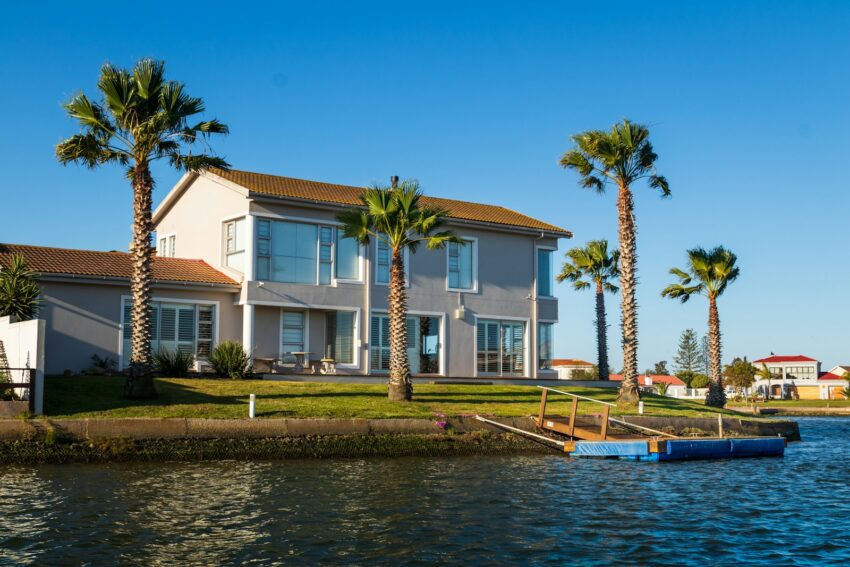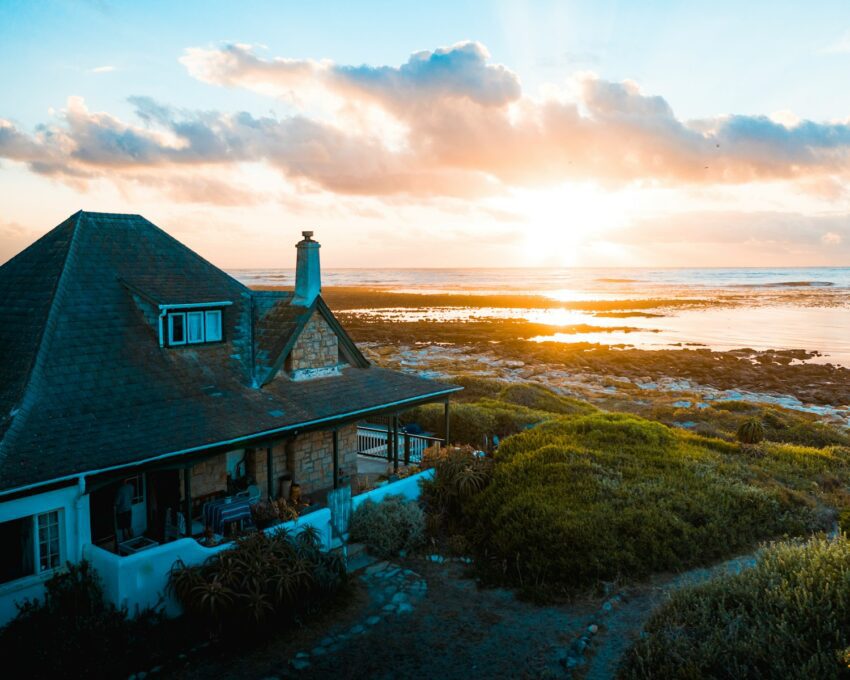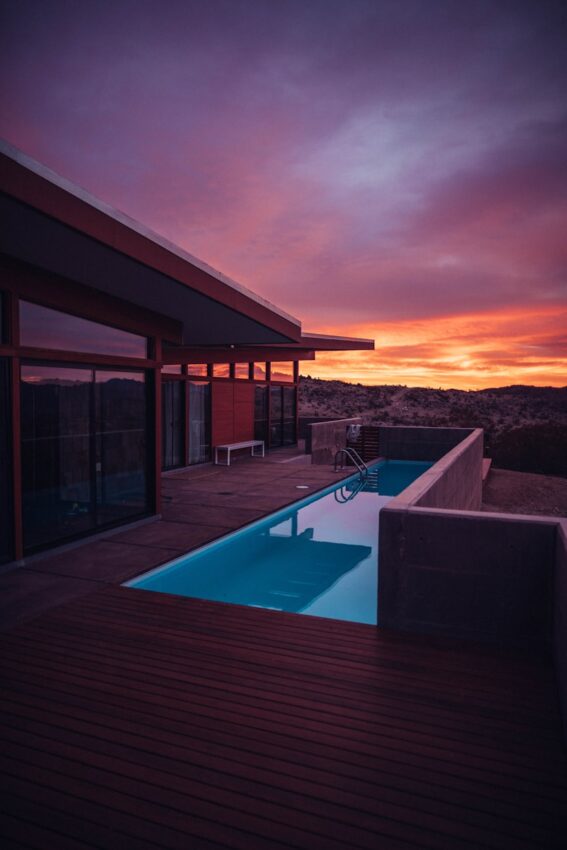Owning a vacation home isn’t just a fantasy—it’s a goal that can lead to both emotional and financial rewards. Imagine having a private getaway to unwind, recharge, and make lasting memories with your family and friends. At the same time, your vacation property can be a strong source of income, especially when it’s in a high-demand destination. Take Maui, for example—over 2 million tourists visited in 2023 alone, making it one of the most attractive spots for vacation rental income. But buying a vacation home isn’t only about location and profits. It’s about creating a space that fits your lifestyle while being easy to manage.

This article walks you through everything, from finding the right home to keeping it functional, stylish, and income-ready all year round.
-
What are Your Goals?
Before diving into listings or dreaming about decor, make sure you’re clear on your goals. Are you planning to use the property exclusively for personal getaways, or will it be a mix of rental income and private use? Will it be your future home or a temporary investment for a few years? Your answers will shape many decisions ahead. For example, if maximizing rental income is a top priority, your design choices will need to favor durability and universal appeal. On the other hand, if this home is purely for personal escape, you’ll want to prioritize comfort and features that suit your own lifestyle.

-
Partner with a Local Realtor
A trusted local realtor can make or break your experience—especially in a market like Maui, where communities differ drastically in feel, pricing, and amenities. Partnering with someone who knows the area helps you identify locations that match your goals. For example, if you’re looking for luxury homes with over five acres and sweeping mountain and ocean views, Puunoa Beach Estates might be the perfect fit. A knowledgeable agent will show you what’s available and offer insights that online listings simply can’t. They’ll also connect you with the right professionals for inspections, legal questions, and local services.
-
Understand the Financial Commitments Upfront
Buying a vacation home involves more than the purchase price. Property taxes, insurance, utilities, routine maintenance, and emergency repairs all need to be considered. If the property is in a managed community, expect HOA fees as well. For homes in high-demand vacation zones, insurance premiums can be higher due to weather risks or local laws. If rental income is part of your plan, research occupancy rates and market trends carefully. Understanding the full financial picture early keeps you in control and makes the investment less stressful in the long run.

-
Choose a Design Style That Works for You and Your Guests
Once the purchase is complete, the next challenge is making the space your own. Design choices should reflect the kind of environment you want to create. For example, a serene coastal style with light colors and natural textures is often a great fit for vacation homes, especially near the beach. But design isn’t just about aesthetics. If you’re planning to rent the property, aim for a clean, consistent look that photographs well and appeals to a broad audience. Avoid overly personal decor, and keep the layout simple and open. Stick to finishes that are easy to maintain, like washable wall paint, sealed countertops, and sturdy floors. A well-thought-out design makes your home welcoming and easy to live in, whether you’re there for a week or a season.
-
Prioritize Function Over Flash in Furnishings
It’s tempting to go all-in on trendy pieces, but functionality should always come first. Your vacation home needs furniture that stands up to use, looks great, and doesn’t require constant upkeep. Sofas should be both comfortable and durable. Beds should have quality mattresses and linens. Avoid clutter and think about how people will actually use the space. Choose pieces that are versatile and low-maintenance. If you’re renting, storage is crucial—for both guests and supplies like linens and cleaning products.
A well-furnished home should make life easier, not more complicated.
-
Invest in Smart Home Features
Technology can be a game-changer when managing a vacation home, especially from a distance. Smart home features like keyless entry systems, security cameras, leak detectors, and programmable thermostats help keep the property secure and energy efficient. These tools allow you to control major aspects of the home from your phone, even when you’re hundreds of miles away. For short-term rentals, smart locks eliminate the need for physical key exchanges, making check-ins smoother for guests. Automated lights and thermostats also reduce energy waste between stays. While the upfront investment may seem high, the long-term convenience and control are well worth it.
-
Don’t Skip on Outdoor Spaces
When it comes to vacation homes, outdoor areas add serious value—to your experience and to your property’s rental appeal. Whether it’s a patio, garden, balcony, or deck, these spaces deserve attention. Comfortable seating, good lighting, and some shade can transform an average outdoor area into a favorite gathering spot. Consider adding a grill, fire pit, or even an outdoor shower if the layout allows. These features make your property more enjoyable for you and more attractive to renters. Just be sure to select weather-resistant furniture and materials to withstand the elements. Maintaining the outdoor areas keeps the property inviting year-round, whether you’re lounging under the stars or hosting a barbecue.
-
Build a Reliable Local Maintenance Team
Even the best-maintained home will face the occasional leak, broken appliance, or unexpected storm damage. If you’re not living near your vacation home full-time, a dependable local maintenance team is a must. This means more than just a cleaner—it includes a handyman, plumber, electrician, landscaper, and possibly a property manager if you’re renting frequently. These people become your lifeline when things go wrong. Ideally, you want professionals who are responsive, trustworthy, and familiar with vacation homes. Having the right support team in place protects your investment and gives you peace of mind.
-
Refresh and Update Regularly
Even the most beautifully designed vacation home needs regular attention. Over time, décor fades, appliances wear out, and guest expectations evolve. Make a habit of reviewing your space at least once a year. Replace any damaged furniture, upgrade worn-out linens, and consider updating small features like light fixtures or kitchen hardware for a fresh look. IUpdating your home doesn’t have to mean a full renovation. A few strategic changes can keep the space feeling current and cared for.
Creating and maintaining a vacation home involves more than choosing a beautiful property—it’s an ongoing commitment to thoughtful planning, smart design, and reliable management. With the right attention to these details, your property can be more than just a getaway—it can be one of the smartest decisions you ever make.
